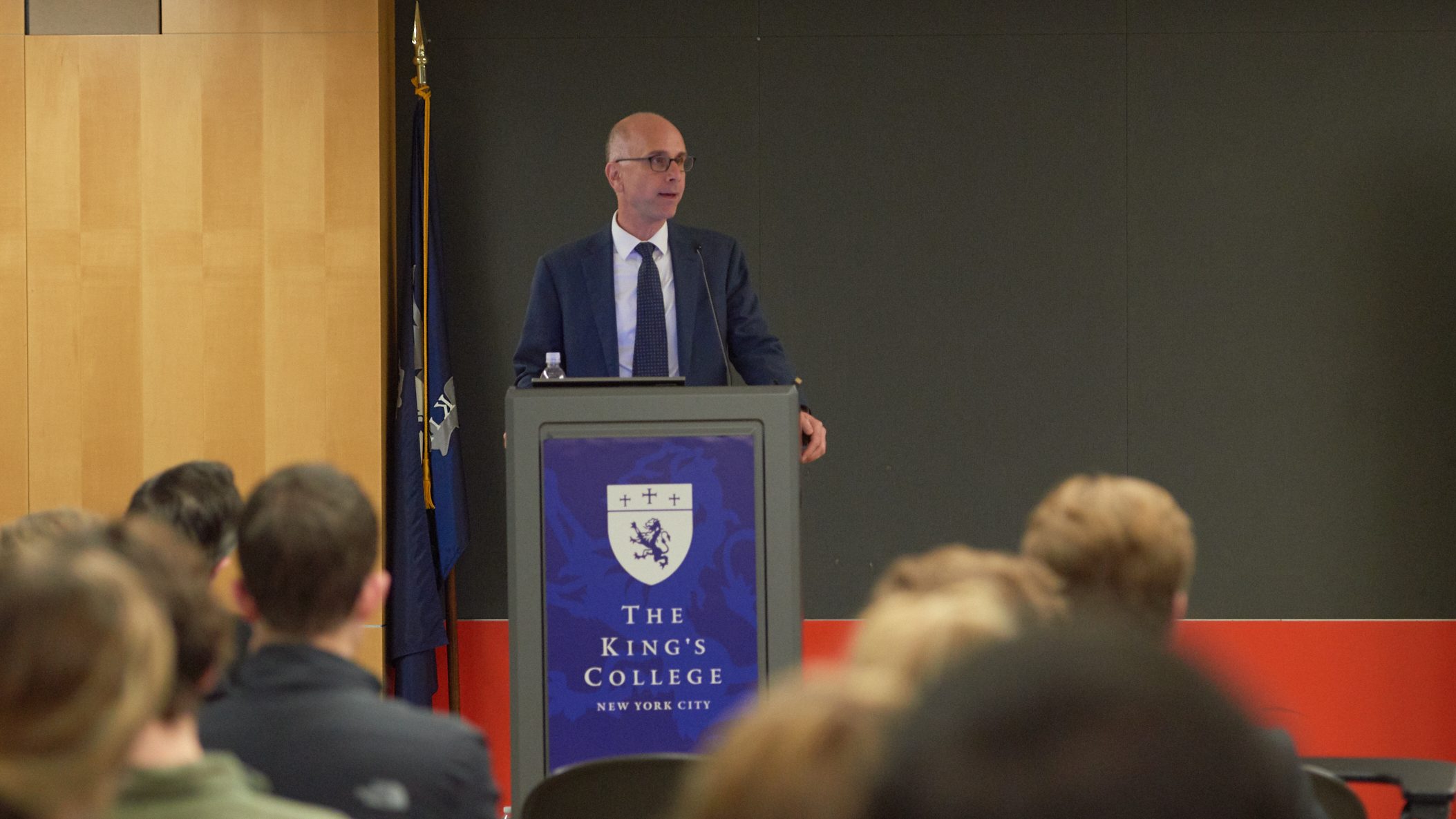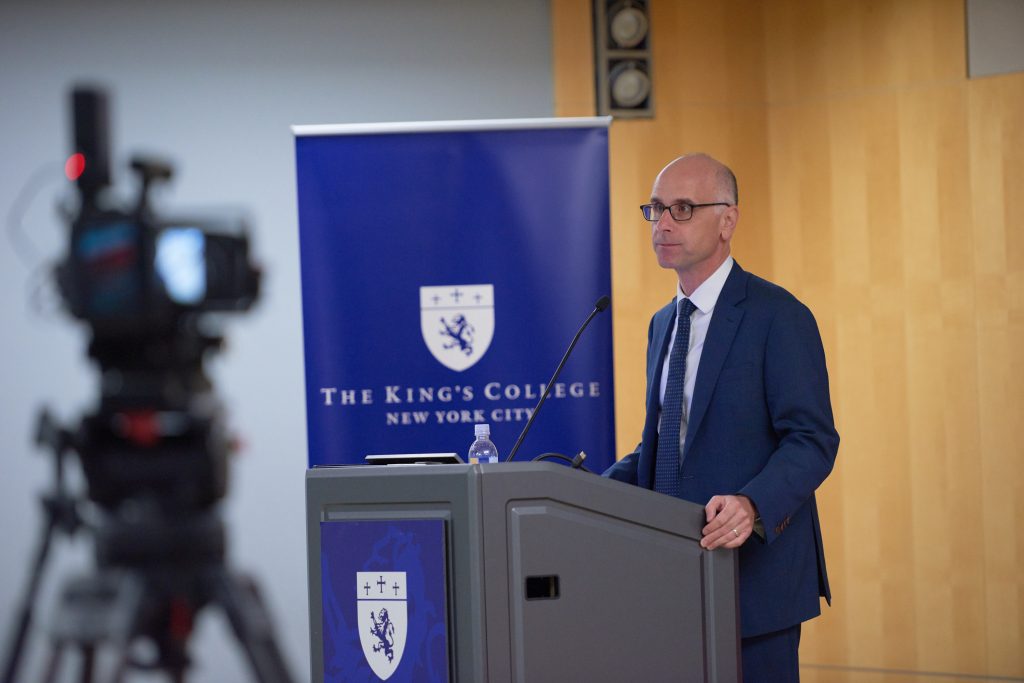How Cultural Norms Affect the Legal System: Mark Movsesian’s Constitution Day Lecture
The King’s College celebrated Constitution Day with a guest lecture from Professor Mark Movsesian, Director of the Center for Law and Religion at St. John’s University.

Each year on September 17, the United States recognizes the day in 1787 when the U.S. Constitutional Convention first signed and adopted our nation’s Constitution. This year, The King’s College celebrated Constitution Day with a guest lecture from Professor Mark Movsesian, the Frederick A. Whitney Professor of Contract Law and Director of the Center for Law and Religion at St. John’s University.
Provost Dr. Mark Hijleh said, “The annual Constitution Day lecture provides us all an opportunity to think about how the intersections of law and constitutional precedent affect the culture we live in. In that same vein, Professor Movsesian’s remarks gave students a fascinating analysis of how evolving cultural norms can affect our legal system.”

Professor Movsesian, who was invited by Dr. David Tubbs, associate professor of politics at King’s, began his lecture remarking that his talk might not be necessarily cheerful. Movsesian’s lecture focused on the trends he has observed in the wake of the Supreme Court ruling in Masterpiece Cakeshop v. Colorado Civil Rights Commission.
Professor Movsesian argued that he has seen a “growing polarization between two groups in American religious life: the Nones and the Traditionally Religious.” According to a Pew survey that Movsesian presented, “nones” (those who are religiously unaffiliated) comprise enough people to be the second largest religious group in America. Movsesian explained that the most common reason “nones” give for rejecting religion is that they question the authority of organized religion. According to Movsesian, “nones” believe that “The individual, not the religious community, has the right to judge what is true—or, at least, what is true for him.”
Movsesian went on to explain that while the non-religious are increasing, the “religiosity” of those who are religious is growing too. “As in so many areas of American life, the middle is dropping out in favor of the extremes on either end.” Movsesian concluded his explanation of the trend remarking that “Neither group seems interested in compromise.”
Movsesian described other trends, including the tendency in America today to endorse “equality as sameness,” including with respect to religion. He noted that this reminded him of a prediction by Alexis de Tocqueville that democratic equality would eventually lead people to embrace pantheism. Movsesian also described the increase in administrative rules enforcing these new ideas of equality, “particularly with respect to sexuality and gender.” These trends inform Movsesian’s three predictions about the future in America. First, conflicts like Masterpiece Cakeshop are likely to increase, because “religious polarization, centered on sexuality, seems likely to continue.”
Second, “The law in this area will remain unsettled and deeply contested for some time to come.” Third, “Judicial appointments will become even more heated and partisan than they already are.”
Movsesian concluded his lecture observing that “The trends that Masterpiece Cakeshop reflects—religious polarization, an expansive concept of equality, and the growth of an activist state—will continue to shape our law for decades to come.”
Jackson Kane (PPE ’20), who attended the lecture on Thursday, said, “It was interesting to consider the political dimension of the judicial system and how the polarization of politics has led to the polarization of Supreme Court rulings. Professor Movsesian pointed out that this is not how it has always been.”





